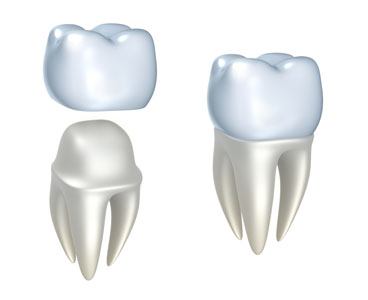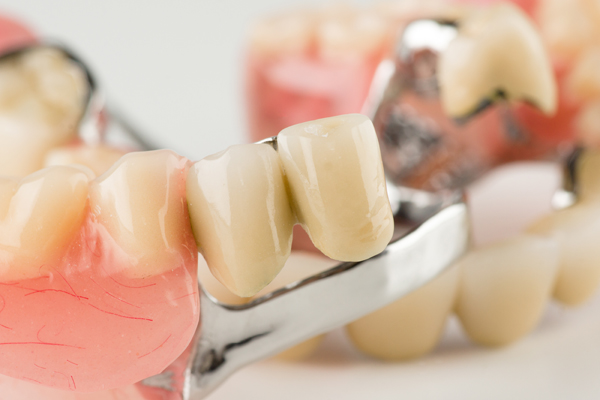Here is Why a Dental Crown May Be Needed Instead of a Filling
 When our Placentia office recommends a dental crown, our patients typically know there is an important reason for it. At times, teeth are damaged, decay, or need the support of a dental crown in order to remain intact. The versatility of crowns and their ability to deal with a number of different challenges is what makes them rank among the most frequently used dental restoration processes. Still, some of our patients are concerned about the costs. Since insurance typically pays a portion of the cost, there can be some financial commitment on behalf of the patient as well, leading to questions about the necessity of the crown. From our perspective, we never recommend any procedure unless we truly believe it is necessary in order to maintain the health and well-being of your mouth. If a filling can repair a tooth and that is the route you wish to take, then our Placentia office is happy to accommodate. However, there are multiple reasons why a crown is the better solution.
When our Placentia office recommends a dental crown, our patients typically know there is an important reason for it. At times, teeth are damaged, decay, or need the support of a dental crown in order to remain intact. The versatility of crowns and their ability to deal with a number of different challenges is what makes them rank among the most frequently used dental restoration processes. Still, some of our patients are concerned about the costs. Since insurance typically pays a portion of the cost, there can be some financial commitment on behalf of the patient as well, leading to questions about the necessity of the crown. From our perspective, we never recommend any procedure unless we truly believe it is necessary in order to maintain the health and well-being of your mouth. If a filling can repair a tooth and that is the route you wish to take, then our Placentia office is happy to accommodate. However, there are multiple reasons why a crown is the better solution.
A dental crown is also known as a dental cap because it covers the affected area of the tooth, more often than not - the entire tooth. These crowns are specially fabricated in the laboratory based on the measurements taken by us so that they are an exact fit for your teeth. Dental crowns perform several vital functions when they are placed. Two of these that merit mentioning are –
• When a tooth is damaged, it can have an effect on the entire mouth as it compensates for the damaged tooth. A dental crown helps to support the damaged tooth. This, in turn, helps with the functionality of the teeth, both the tooth being crowned and those surrounding it so that any damage or shifting of the bite can be avoided.
• Teeth that have decayed to the point where we are considering a crown typically can spread bacteria to other, healthy, teeth which are something we want to avoid. In these cases, the crown acts to support the tooth after we have removed all of the decayed portions and also prevents bacteria from the infected tooth from spreading throughout the mouth.
Performing vital support functions while allowing the mouth to operate, without making adjustments, are key reasons why people need to get teeth crowned. They may not be the most inexpensive option, but they are among the most durable and long-lasting. If you have cracked, chipped, or damaged a tooth, for example, you will want to consider getting a dental crown which will prevent the tooth from being damaged even more. Similarly, if the tooth has decayed significantly, or if you need to get a root canal because of the damage to the tooth, we may recommend a dental crown to protect it while giving structural support to the teeth around it.
Another reason many people end up getting a dental crown is to replace old fillings. When a filling gets too big, from the tooth continuing to decay around it, having a crown might actually help mitigate some of the decay and keep the tooth healthy.
Family Dentistry > Dental Implants When our Placentia office recommends a
When our Placentia office recommends a 
